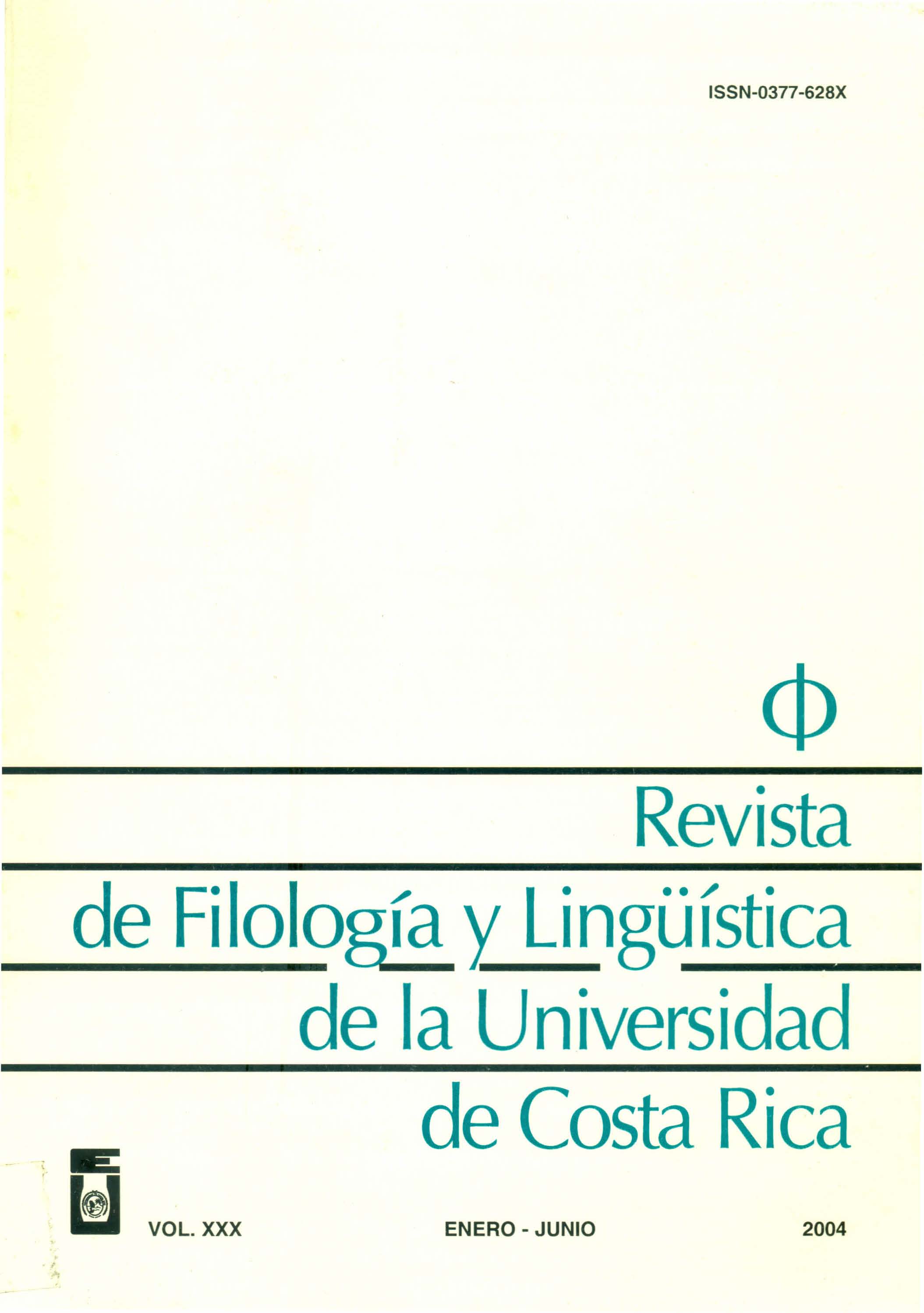Abstract
This article evaluates the possible relationship between the speed at which morphologically complex words are processed and their respective grades of semantic transparency and of affixing with the intent to infer explainable effects through the method of understanding spoken polymorphemic words.
References
Arrieta, A. 2002. "Modelos psicolingüísticos de reconocimiento de palabras habladas polimorfémicas". Revista de Filología y Lingüística de la Universidad de Costa Rica. XXVIII (1): 215-29.
(2003). "Estudio de dos factores implicados en el reconocimiento de palabras: el grado de afijación y el grado de transparencia semántica". Revista de Filología y Lingüística de la Universidad de Costa Rica. XXIX (2): 131-146.
Belinchón, M. 1992. Psicología del lenguaje. Investigación y teoría. Madrid: Editorial Tratta, S.A.
Colé et al. 1989. "On the Representation and Processing of Prefixed and Suffixed Derived Words: a Differential Frequency Effect". Journal of Memory and Language. 28: 1-13.
Feldman, L.B. (Ed.). Morphological Aspects of Language Processing. Hillsdalen New Jersey: Erlbaum Associates Publishers.
Manelis, L. y D. Tharp. 1977. "The Processing of Affixed Words", Memory & Cognition. 5: 690-5.
McQueen, J. YA. Cutler. 1998. "Morphology in Word Recognition". En Spencer A. y Zwicky A.M. (Eds.): 406-27.
Meunier, F. 1997. Morphologie et Traitement du Langage Parlé. Thése de Doctorat en Psychologie: Université René Descartes-Paris V.
Marslen-Wilson, W.D., X-L. Zhou, y M. Ford. 1996. "Morphology, modality and lexical architecture". En Yearbook of Morphology. Kluwer Academic Publishers: Netherlands.
Pillon, A. 1998. "The Pseudo-prefixation Effect in Visual Word Recognition: A True -Neither Strategic nor Orthographic-Morphemic Effect". The Quarterly Journal of Experimental Psychology. (1): 85-120.
Spencer A. Y A.M. Zwicky (Eds.), The Handbook of Morphology. Oxford: Blackwell Publishers, 406-427.
Stolz, J.A. y L.B. Feldman. 1995. "The Role of Orthographic and Semantic Transparency of the base Morpheme in Morphological Processing". En L.B. Feldman (Ed.): 1009-129.
Taft, M. 1994. "Interactive-Activation as a Framework for Understanding Morphological Processing". Language and Cognitive Proceses. 9 (3): 271-94.
Taft, M. y K.I. Forster. 1975. "Lexical Storage and Retrieval of Prefixed Words". Journal of Verbal Learning and verbal Behavior. 14: 638-47.
Taft, M., G. Hambly y S. Kinoshita. 1986. "Visual and Auditory Recognition of Prefixed Words". Quaterly Journal of Experimental Psychology. 38 A: 351-66.
Tyler, L. y W.D. Marslen-Wilson. 1986. "The Effects of Context on the Recognition of Polimorphemic Words", Journal of Memory and Language. 25: 741-52.
Tyler, L. et al. 1988. "Continuous and Discontinuous Acces in Spoken Word Recognition: The Role of Derivational Prefixes". Journal of Memory and Language: 27: 368-81.
Wurm Lee H. 1997. "Auditory Processing of Prefixed English Words is Both Continuous and Decompositional". Journal of Memory and Language. 37: 438-61.

